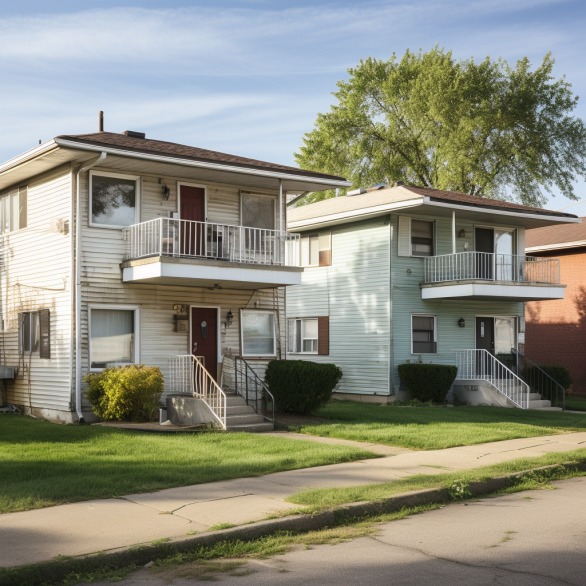
Apartment Rent Based on Income: A Comprehensive Guide to Affordable Housing
Finding suitable housing that aligns with your income can be challenging. However, income-based rental apartments offer a solution to this problem. In this article, we will explore various aspects of apartment rent based on income, including eligibility criteria, application process, pros and cons, tenant rights, senior housing, and alternative options.

What are income-based rental apartments?
Income-based rental apartments are housing units where the rent is determined based on the tenant’s income. These apartments aim to provide affordable housing options for individuals and families with limited financial resources.
Understanding the eligibility criteria for income-based housing
To qualify for income-based housing, you generally need to meet certain income limits set by the housing authority or property management. These limits vary depending on factors such as household size and location. Eligibility may also consider other factors like citizenship status and criminal background checks.
Factors that determine the rental amount in income-based apartments
The rental amount in income-based apartments is typically based on a percentage of your monthly income. Housing authorities or property management calculate this amount by considering factors such as the number of people in your household, your income level, and any applicable deductions.
Exploring the income verification process for income-based housing
During the application process, you will need to provide proof of income, such as pay stubs, tax returns, or benefit statements. Housing authorities or property management will use this information to determine your eligibility and calculate the rental amount.

How to calculate the maximum rent based on income
Calculating the maximum rent based on your income involves multiplying your monthly income by the designated percentage. For example, if the percentage is 30% and your monthly income is $2,000, the maximum rent you would pay is $600. Most commonly, spending no more than 1/3 (33%) of your income on rent is suggested.
Tips for preparing your documents for an income-based housing application
To ensure a smooth application process, gather all necessary documents in advance. This may include identification documents, proof of income, bank statements, and reference letters. Organize them neatly and make copies as required.
Income-based housing waitlists: What to expect and how to navigate them
Due to the high demand for income-based housing, waitlists are common. Be prepared for potential wait times and inquire about estimated waitlist durations. Stay in touch with the housing authority or property management to stay informed about your application status.
Exploring the benefits of income-based housing
Income-based housing offers numerous benefits, including affordable rent, financial stability, and the opportunity to live in a well-maintained community. It can provide a sense of security and alleviate financial burdens, allowing you to focus on other essential aspects of your life.
Potential drawbacks of renting an income-based apartment
While income-based housing can be advantageous, it’s important to consider potential drawbacks. These may include limited housing options, stricter rules and regulations, and the possibility of higher demand leading to longer wait times for housing placement.
Balancing privacy and income disclosure in income-based housing
When applying for income-based housing, you will need to disclose your income and financial information. While this may raise privacy concerns, housing authorities and property management are required to handle this information confidentially.
What to consider when choosing an income-based apartment complex
When selecting an income-based apartment complex, consider factors such as location, amenities, proximity to essential services, transportation options, and the overall reputation of the property management.
Resources and organizations that assist with income-based housing applications
Numerous resources and organizations provide assistance with income-based housing applications. Local housing authorities, nonprofit organizations, and community centers often offer guidance, support, and resources to help individuals navigate the process successfully.
Understanding the lease terms and conditions in income-based housing
Lease terms and conditions in income-based housing are generally similar to those in traditional rental agreements. It’s important to thoroughly review the lease, including rules, rent payment procedures, maintenance responsibilities, and any additional provisions specific to income-based housing.
Additional financial assistance programs for low-income renters
In addition to income-based housing, various financial assistance programs are available to low-income renters. These programs may offer rental subsidies, utility assistance, or vouchers to help further alleviate the financial burden.
Exploring affordable housing alternatives to income-based apartments
If income-based housing is not available or suitable for your needs, it’s worth exploring other affordable housing options. These may include cooperative housing, subsidized housing, public housing, or affordable rental units provided by nonprofit organizations.

Leave a Comment